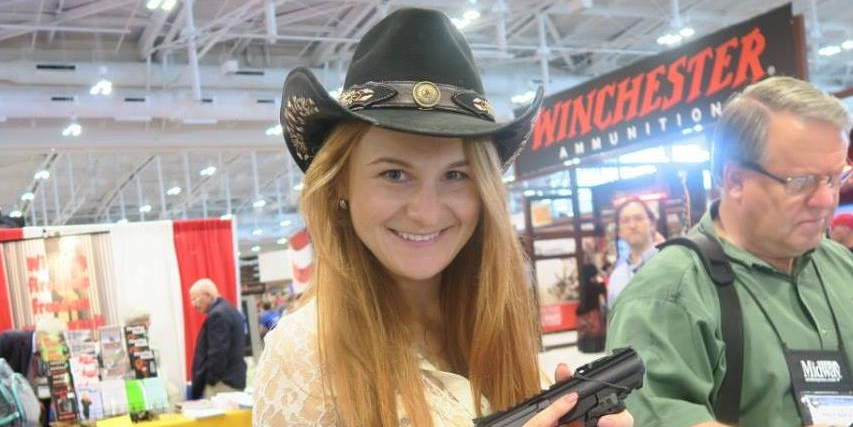- Maria Butina, the Russian gun rights activist charged with being a Russian agent, reportedly tried to interview a left-leaning civil rights group in 2017 about its cyber vulnerabilities.
- Russia mounted an elaborate campaign to interfere in the 2016 US election that involved, among other things, hacking into the Democratic National Committee and disseminating stolen information.
- Butina’s reported outreach to the group could be indicative of Russia’s ongoing efforts to infiltrate US politics.
Sign up for the latest Russia investigation updates here»
Maria Butina, the 29-year-old Russian gun rights activist whom the US has accused of being a spy for the Russian government, apparently did not limit her outreach in US political circles to right-wing groups.
The Washington Post reported Wednesday that Butina tried to interview a left-leaning civil rights group about its cyber vulnerabilities last year. She is said to have told the group that she wanted to set up the interview as part of a school project when she was studying as a graduate student at American University. Her attempt was unsuccessful, a person familiar with her outreach told The Post.
Butina was indicted Tuesday on two counts related to conspiracy and acting as an agent of the Russian government. The indictment says Butina and a high-ranking Russian official worked to create a “back channel” between Russia and the US, using the National Rifle Association as a conduit. A hearing for her case is scheduled on Wednesday in Washington, DC.
Robert Driscoll, an attorney for Butina, said she is not a Russian agent but merely a student with an interest in politics and a desire to network with Americans.
"She intends to defend her rights vigorously and looks forward to clearing her name," hesaid in a statement to The Post.
Butina's reported outreach to the unnamed civil rights group came after Russia mounted an elaborate and multi-faceted campaign to interfere in the 2016 presidential election.
That effort involved, among other things, hacking into the servers of the Democratic National Committee and disseminating stolen information through third party groups including WikiLeaks.
Last week, the special counsel Robert Mueller charged 12 Russian intelligence officers with counts related to hacking, conspiracy, aggravated identity theft, and money laundering.
The same day, Dan Coats, the Director of National Intelligence, said "the warning lights are blinking red again" on potential cyberattacks against the US.
"Today, the digital infrastructure that serves this country is literally under attack," Coats said.
Comparing the threat level facing the US now to the weeks before the September 11, 2001, attacks, Coats added that Russia is the "most aggressive foreign actor, no question. And they continue their efforts to undermine our democracy."
However, the White House has not given the National Security Agency and US Cyber Command any official guidance on how to guard the 2018 midterms and future elections against foreign interference.
Last week, NSA director Paul Nakasone announced that he had directed the two organizations to act independently of the White House to counter Russia's aggression. They are also working with the FBI, the CIA, and the Department of Homeland Security on the initiative.
"Nakasone, and the heads of the other three-letter agencies, are doing what they can in their own lanes, absent an overall approach directed by the president," former NSA director Michael Hayden told The Post. But "as good as it is, it's not good enough. This is not a narrowly defined cyber threat. This is one of the most significant strategic national security threats facing the United States since 9/11."

